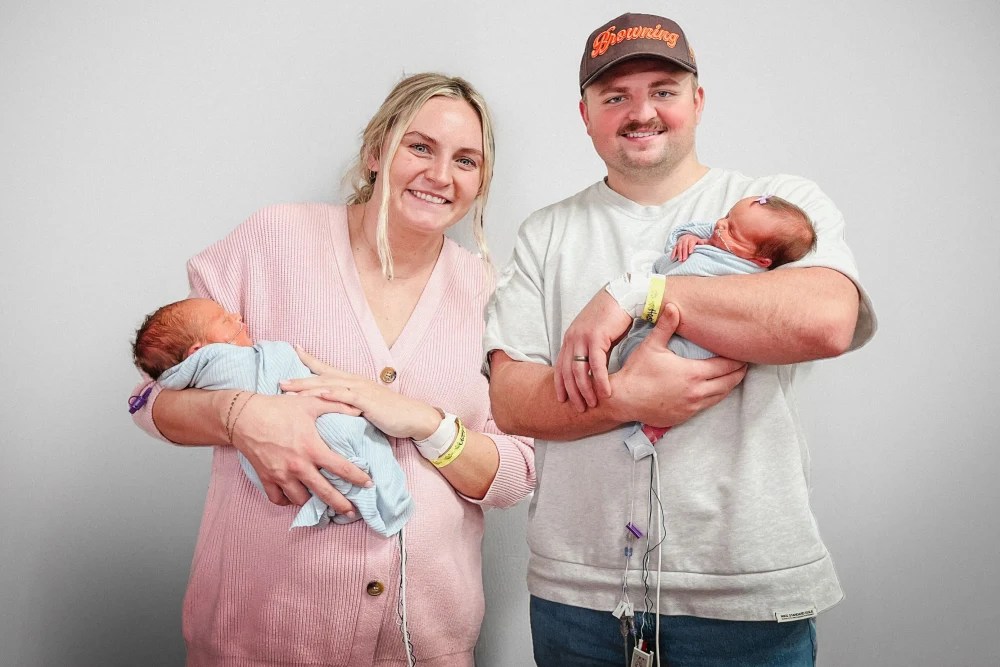President-elect Donald Trump said in an interview with “Meet the Press” moderator Kristen Welker that “you have no choice” but to deport everyone who is illegally in the U.S., including possibly removing the American citizen family members of those deported.
Trump also said he will move to end birthright citizenship — long enshrined in the 14th Amendment of the Constitution — which would strip rights from those born in the country to undocumented parents.
But, he said, he is open to working with Democrats to pass legislation that would ensure Dreamers — undocumented immigrants who entered the U.S. as children — would be able to remain in the country.
Trump’s comments about his mass deportation plan, a key promise of his presidential campaign, were the most expansive since he won the election in November. The program, he said, will begin with undocumented immigrants who have committed crimes and then advance to “people outside of criminals.” He did not detail which crimes would be included.
Get Tri-state area news delivered to your inbox.> Sign up for NBC New York's News Headlines newsletter.
“I think you have to do it,” Trump said of his deportation effort. “It’s a very tough thing to do. It’s — but you have to have, you know, you have rules, regulations, laws. They came in illegally. You know, the people that have been treated very unfairly are the people that have been on line for 10 years to come into the country.”
“We have to get the criminals out of our country,” Trump said, later adding: “But we’re starting with the criminals, and we got to do it. And then we’re starting with others, and we’re going to see how it goes.”
Asked by Welker, “Who are the others?” Trump responded, “Others are other people outside of criminals.”
U.S. & World
There was a large increase in the number of unauthorized immigrants crossing into the U.S. during President Joe Biden’s time in office, though that number has fallen following executive actions in recent months.
Tightening restrictions around the U.S. border with Mexico was at the forefront of Trump’s candidacy — much as it was during his first run in 2016. Trump and allies routinely highlighted acts of violence committed by undocumented immigrants to bolster their case. (A 2024 study from the National Institute of Justice found that Texas arrest records between 2012 and 2018 showed undocumented immigrants were arrested at less than half the rate of native-born Americans for violent crimes.)
Trump also described scenarios in which U.S. citizens may choose to be deported along with family members in the country illegally. His comments echoed Tom Homan, his pick to serve as border czar in the upcoming administration, in saying that he will be deporting families with mixed immigration status together.
“Let me ask you about another group of people, the estimated 4 million families in America who have mixed immigration status. So I’m talking about parents who might be here illegally,” Welker said, “but the kids are here legally.”
“I don’t want to be breaking up families,” Trump said. “So the only way you don’t break up the family is you keep them together and you have to send them all back.”
Welker also asked about the zero-tolerance policy during Trump’s first term, where families would be separated at the border as a means of deterrence for those who chose to enter the U.S. illegally. Trump eventually ended the practice.
“We don’t have to separate families,” Trump said. “We’ll send the whole family very humanely, back to the country where they came.”
“So no more family separations?” Welker asked. “You’re not reviving the zero-tolerance policy?”
“It depends on the family,” Trump said, adding later: “If they come here illegally but their family is here legally, then the family has a choice. The person that came in illegally can go out, or they can all go out together.”
On birthright citizenship, Trump said he would seek to repeal it via executive action — which would be certain to spark immediate legal challenges.
“We have to end it,” Trump said, calling it “ridiculous.”
Trump suggested that birthright citizenship is uniquely American, saying, “We’re the only country that has it, you know.” But according to a review by the Library of Congress, more than 30 nations provide birthright citizenship, including Canada and Brazil.
The president-elect used a softer tone when discussing Dreamers, those who arrived in the U.S. nearly 20 or more years ago as children and are covered under the Deferred Action for Childhood Arrivals, or DACA, program that has allowed them to remain in the country and work legally.
“We have to do something about the Dreamers, because these are people that have been brought here at a very young age, and many of these are middle-aged people now, they don’t even speak the language of their country,” Trump said, adding: “I will work with the Democrats on a plan.”
“They were brought into this country many years ago,” he continued. “Some of them are no longer young people, and in many cases they've become successful. They have great jobs. In some cases, they have small businesses. Some cases they might have large businesses, and we’re going to have to do something with them.”
This article first appeared on NBCNews.com. Read more from NBC News here:



